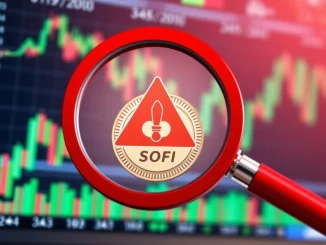
An alarming report from local media outlet BizWatch highlights a significant challenge facing the digital asset sector: more than half of South Korea virtual asset operators are grappling with insufficient capital. This comes at a critical time as license renewals are currently underway, raising concerns about the future landscape of the nation’s crypto market.
The State of South Korea Virtual Asset Operators
The virtual asset industry in South Korea has seen rapid growth, but beneath the surface, many smaller players are struggling. The BizWatch report paints a stark picture, indicating that a majority of these operators do not possess the necessary financial resources to meet regulatory requirements and ensure sustainable operations. This financial vulnerability puts their ability to continue operating under the current regulatory framework at risk.
Why is Korea Crypto Funding So Scarce?
Several factors contribute to the difficulty in securing sufficient Korea crypto funding for many operators. These can include:
- Strict Regulatory Requirements: Meeting the financial and operational standards set by regulators demands substantial capital investment.
- Market Volatility: The inherent volatility of the crypto market can impact revenue streams and make long-term financial planning challenging.
- Competition: Intense competition, particularly from larger, well-established players, squeezes margins for smaller firms.
- Investor Caution: A cautious investment climate, potentially influenced by regulatory uncertainty or past market downturns, can make it harder to raise funds.
These combined pressures create a difficult environment for operators trying to maintain financial health.
Navigating the Virtual Asset License Renewal Process
The current push for virtual asset license renewals is a critical juncture for the industry. Operators are required to demonstrate compliance with various regulations, including capital adequacy. For those already facing funding issues, this renewal process becomes a significant hurdle. Failure to meet the stringent requirements could result in licenses not being renewed, forcing companies to cease operations. This regulatory gatekeeping aims to strengthen the market but poses an existential threat to undercapitalized firms.
The Dominance of Major Korean Crypto Exchanges
The report notes a clear divide within the market. While many operators struggle, a few major players stand out. Large Korean crypto exchanges like Upbit and Bithumb appear to be exceptions, reportedly not facing the same level of serious management difficulties. Their established market position, larger user bases, and potentially stronger financial backing likely provide them with a significant advantage in meeting regulatory demands and navigating market challenges compared to their smaller counterparts.
What This Means for the South Korea Crypto Market
The potential exit of numerous underfunded operators could lead to significant consolidation in the South Korea crypto market. While this might strengthen the remaining compliant entities and potentially enhance overall market stability from a regulatory perspective, it also raises questions about market competition and innovation. A market dominated by a few large players might limit choices for users and potentially stifle the development of diverse services.
Conclusion: A Critical Juncture
The revelation that over half of South Korea’s virtual asset operators lack sufficient funding is a critical development. As the virtual asset license renewal process continues, the industry is poised for potential restructuring. This situation underscores the challenges smaller firms face in a highly regulated and competitive environment and highlights the growing divide between market leaders and the rest of the field in the South Korean digital asset space.



